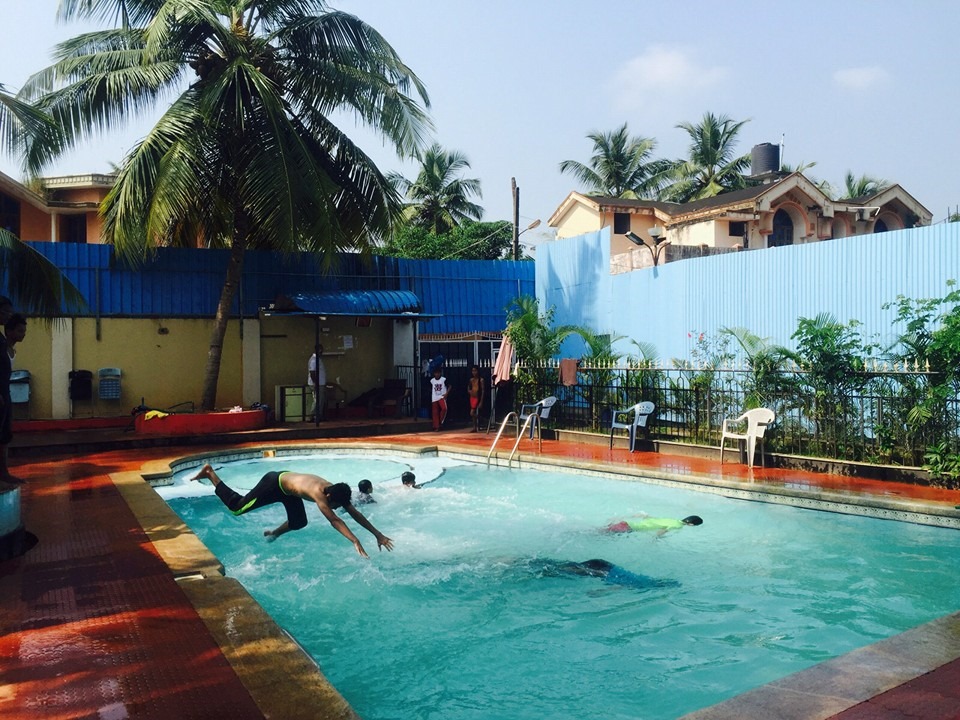Bhatkal: Traveling and tourism contribute to maintaining good health, while entertainment activities benefit both physical and mental well-being. In Islamic teachings, emphasis is placed on avoiding laziness and adopting physical activity along with a nutritious diet to lead a healthy lifestyle. Among various physical activities, swimming is particularly highlighted as an excellent exercise that not only offers enjoyment but also provides a full-body workout. Experts often tout swimming as the best exercise for maintaining fitness and health, noting its benefits in nerve coordination. Engaging in swimming sessions 2 to 3 days a week is recommended for staying healthy and fit.

During summer, people often visit canals, ponds, lakes, and seas for leisure activities, leading to crowded beaches and swimming pools. This trend may explain why old mosques frequently had ponds within their premises; these ponds were integral to mosques, providing children with opportunities to learn swimming and enjoy themselves.
In Bhatkal's past, numerous ponds dotted the landscape, attracting crowds of children who developed a love for swimming. Notable among these was the Sultani Masjid pond, a hub of activity, along with the ponds at Jamia Masjid, Khalifa Jamia Masjid, and Noor Masjid. Although the pond at Mushma Masjid still exists, other ponds of the mosques were integrated into mosque expansions. It is regrettable that significant amounts of money were spent to eliminate these ancestral ponds.
In the past, rivers like the Sharabi River and Shazali Masjid River were popular for swimming, particularly on Fridays, drawing crowds of children and adults. However, changes like the Sharabi River becoming a drainage channel led to the cessation of swimming activities there. The depth and cleanliness of the Shazli river deteriorated over time, reducing it as a viable swimming spot.
Tragically, deaths have occurred in these waters too, highlighting the risks. Despite the heroic efforts of expert swimmers like Late Mr. Shingeri Mohammad Meeran, who saved numerous lives, the swimming culture has declined. Nowadays, children have limited options for learning swimming, often resorting to sea swimming or infrequent visits to swimming pools due to financial constraints.
Following the closure of rivers like the Sharabi river, Shazli river, and ponds in mosques, youth have resorted to swimming in remote and dangerous locations. Unfortunately, accidents have occurred due to the allure of deep water pits, such as Jali Beach, Nastar Beach, and Sodigadde, where immediate help may not be available. Youth also visit temporary swimming spots like Mallare in Bengre, Mini Falls in Kasalgedde, Qasimji Pond in Shirali, Alvekodi river, Hanuman Nagar, Zamar matta pond, Gandhi falls, Hinjale in Hadvalli, and other temporary rainy ponds. However, these places pose risks, especially during accidents where immediate help is challenging to obtain.
The lack of proper facilities and safety measures in these remote areas has led to many tragic incidents. Hence, there's a pressing need to provide safer alternatives for youth who enjoy swimming.
It should be noted that modern mosques in Bhatkal are grand and luxurious, adorned with marble, air conditioning, chandeliers, and plush carpets, but the absence of ponds is conspicuous.
Social activists, community leaders, and members of social organizations should consider building pools in every mosque and manage them through a committee dedicated to managing the ponds and providing safe swimming options. This initiative should also include raising awareness and ensuring facilities and protection for swimmers.
Community leaders and educators should recognize the importance of swimming as an art and an excellent physical exercise. Swimming not only serves as a complete physical workout but also equips individuals to respond effectively in flood-like situations or drowning incidents. Including swimming in the school curriculum should also be considered to ensure that the young generation is equipped with this vital life skill.
